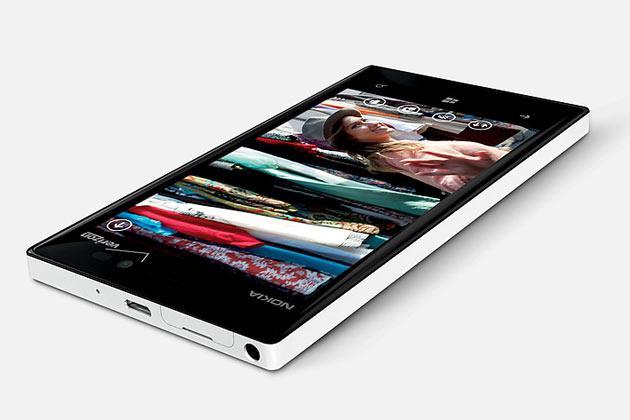
In regards to where each platform ranks in the smartphone industry, it's pretty much clear that if your company isn't Google or Apple, your platform isn't exactly doing so hot. At least, not compared to those two giants. With BlackBerry on its way out, that leaves just one other viable competitor on the market - Windows Phone. Although Windows Phone is considerably further down the ladder than one might think a third most popular platform might be, it's still making headway in the right direction, even if its taking small steps at a time.
Windows Phone itself has a unique platform compared to the other three on the market. There are certainly noticeable differences between iOS, Android and BlackBerry, but when you set all three side-by-side there are also blatant similarities that can make the three somewhat easy to confuse at a glance if you're not familiar with each platform. Windows Phone, however, is noticeably different by going with a more minimalistic design. There really isn't much to customize, but the phrase "less is more" could certainly be applied to the appeal of the design of Windows Phone UI. From a design and response aspect, I think Windows Phone managed to pull off beauty and functionality rather well.
So one might wonder what they did wrong in order to end up so low on the food chain. Android and iOS are clearly dominating everybody else, but if Windows Phone managed to pull off a good-looking platform that functions well what's the hold-up? You'll get different answers from different people, naturally, but my go-to answer usually ends up being the lack of mainstream applications in their market. They might have a considerable amount of applications in their market, sure, but you'll probably find that most of them aren't exactly handy for day-to-day activities. I like a good soundboard as much as the next person, but I do have my limits.
But that's just my opinion, and as just one opinion out of many there's bound to be dispute whether the "lack of mainstream apps" is really the problem or not. I've had plenty of people tell me that they disagree, and to a degree, they're probably right. Although Windows Phone might not have the most mainstream of applications, there is still a somewhat decent selection of third-party apps available for productivity, not to mention apps that are designed to mimic the official mainstream apps that are peculiarly missing from the store. To a lot of people, having to depend on third party apps isn't always a deal breaker.
One thing I have seen mentioned is that there seems to be a lack of emphasis on features when it comes to Windows Phone in general, aside from Nokia's focus on the smartphone camera (which is much appreciated). But considering other smartphone cameras are now comparable, and even surpass the quality of the Lumia cameras, there's not a whole lot that's unique about Windows Phone devices these days. To people who are really involved in the industry, like you and I, it probably doesn't matter. Features aren't necessarily the most important part of the phone. But to a consumer that doesn't spend a good portion of their day comparing phones, features, specs, design, etc. they're primarily going to focus on what the company tells you to focus on. HTC wants you to love its UltraPixel camera - nobody else has one. Samsung wants you to focus on Air Gesture and Smart features - it's the future. Apple wants you to focus on the fingerprint sensor - it's the best of its kind. But aside from Nokia, it doesn't seems like many other manufacturers of Windows Phones are looking to make any one feature stand out to make it a good sell to a potential customer. "What does this phone have that the [insert popular phone of choice here] doesn't have?" More than likely, not a whole lot.
But perhaps adding more features could make Windows Phone more desirable. I recently read that Nokia may be planning to introduce new "3D Touch" technology into one of their next flagship devices that will debut Windows Phone 8.1, according to a report from The Verge. But 3D Touch, as I understand it, seems to be something that we've already seen with Samsung, as it mostly seems to hint at being able to control your device without actually touching it. Waving your hand above the screen to see the time, or scrolling through pages and flipping through screens with hand gestures. But although we've already seen this happen in Android handsets, it has yet to be done with Windows Phone, and who is to say that such gestures wouldn't be a draw for people to use Windows Phone? Features are a main selling point, and as gimmicky as some of those hand gesturing features might seem, I imagine they had something to do with the popularity of the Galaxy S III and S 4 devices. And considering that Nokia has been allegedly working on this technology for a couple of years at this point, who is to say that they won't exectue such features more effectively?
I do wonder if adding more features like that to Windows Phone could help bring the platform more attention. I feel like it would, at least to some degree. But I do still think that applications would be the biggest crowd-bringer in the end. Still, every little bit counts, right?
Image via IBN Live